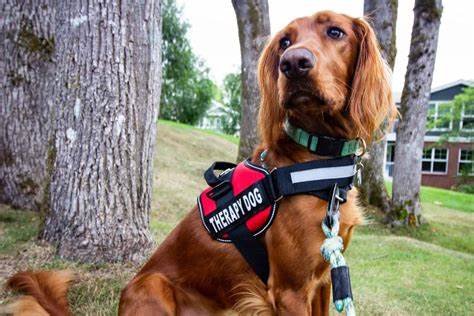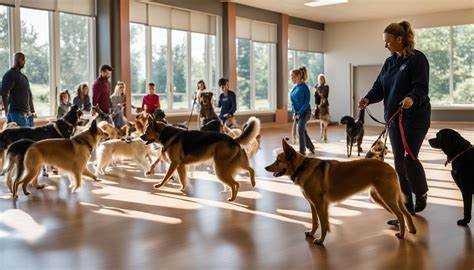How Therapy Dogs Support the Elderly
As people age, they often experience physical, emotional, and social challenges that can significantly affect their quality of life. For many elderly individuals, issues such as loneliness, depression, anxiety, and cognitive decline can diminish their sense of well-being. However, therapy dogs have emerged as powerful companions in addressing these challenges. Their unique ability to provide unconditional love, companionship, and emotional support has made them a valuable resource in eldercare settings, including nursing homes, assisted living facilities, and even in-home care environments. In this article, we explore how therapy dogs support the elderly, enhancing their physical, emotional, and social health through their presence and interaction.

Reducing Loneliness and Isolation
One of the most significant challenges facing the elderly, particularly those living in care facilities, is loneliness. Many older adults have experienced the loss of a spouse, family member, or friend, leaving them feeling isolated. This isolation can have serious consequences, leading to depression, anxiety, and a decline in overall health.
Providing Unconditional Companionship
Therapy dogs offer unconditional companionship to seniors, filling the emotional void left by the absence of loved ones. The presence of a dog provides a sense of comfort, warmth, and companionship, which can significantly reduce feelings of loneliness. The act of petting or simply being near a dog has been shown to release oxytocin, the “bonding hormone,” which helps foster feelings of attachment and well-being.
Enhancing Emotional Well-Being
Therapy dogs are particularly effective in enhancing emotional well-being among elderly individuals, especially those dealing with depression, anxiety, or cognitive decline. The presence of a therapy dog can have a profound impact on an individual’s mood, reducing stress and increasing feelings of happiness.
Reducing Anxiety and Stress
Many elderly people experience heightened levels of anxiety, particularly those living with dementia or Alzheimer’s disease. Therapy dogs help reduce stress and anxiety by providing a calming, non-threatening presence. The act of petting a dog or engaging in light play can promote relaxation and elevate mood. Additionally, dogs can help lower blood pressure and reduce the body’s production of stress hormones, such as cortisol, further supporting the individual’s emotional health.
Improving Physical Health and Mobility
Beyond emotional and psychological support, therapy dogs can also play an important role in improving the physical health of elderly individuals. For older adults with mobility issues, participating in activities with a dog can promote movement, increase physical activity, and enhance overall physical function.
Encouraging Physical Activity
For many seniors, the presence of a therapy dog can motivate them to be more active. Walking the dog or simply engaging in interactive play can encourage physical movement, which is vital for maintaining mobility and strength. Regular physical activity, even in small doses, can help reduce the risks associated with a sedentary lifestyle, such as heart disease, obesity, and muscle atrophy.
Supporting Social Interaction and Connection
Therapy dogs can be powerful facilitators of social interaction, which is critical for maintaining a sense of community and connection in old age. Many elderly individuals, particularly those in nursing homes or assisted living facilities, may struggle to engage with others due to physical limitations, hearing loss, or cognitive impairments.
Facilitating Conversations and Socialization
Therapy dogs help break the ice and facilitate socialization among residents, staff, and family members. A dog can act as a social catalyst, encouraging conversations and interactions that might not otherwise take place. For example, a dog visiting a nursing home can attract the attention of multiple residents, sparking informal chats and creating a sense of camaraderie among the group. This can help improve social bonds and reduce feelings of isolation.
Conclusion
Therapy dogs are a source of comfort, joy, and emotional support for the elderly, improving both their mental and physical health. These amazing animals offer companionship to combat loneliness, reduce stress, enhance emotional well-being, and even promote physical activity. For elderly individuals in nursing homes, assisted living facilities, or private homes, therapy dogs play a vital role in improving quality of life, fostering social connections, and supporting overall health.








